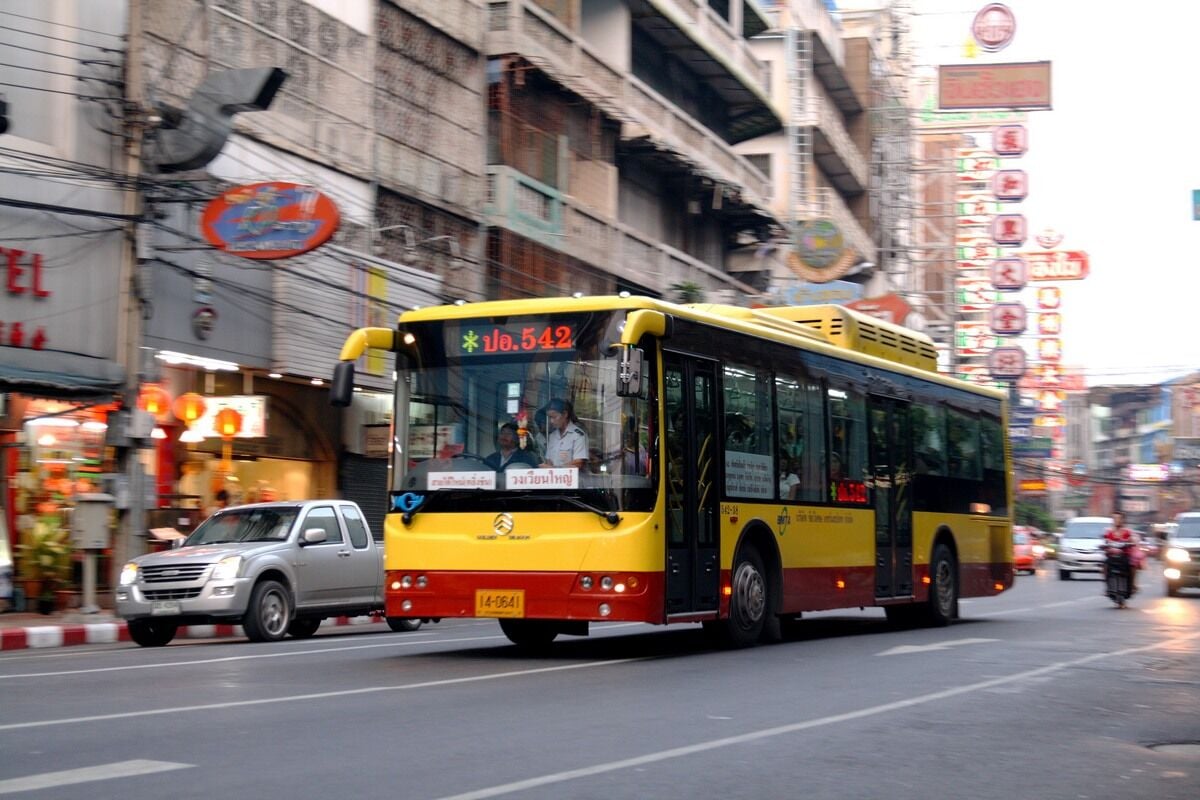Thai bus firms under siege as Chinese rivals drive them up the wall

The Thai bus industry is under siege with Chinese bus operators flooding the market with cut-rate prices and dodgy tactics, leaving Thai companies struggling to keep up. The Thai Transportation Operators Association has sounded the alarm on this cut-throat competition.
Wasuchet Sophonsathien, the association’s president, laid bare the ongoing crisis. Illegal foreign bus operators are muscling in on the market, undercutting licensed Thai firms that are still reeling from the pandemic’s economic blow.
The situation is getting even worse as these rogue operators adapt their tactics. With a surge of independent and luxury tour groups from China, they’re ditching their big buses in favour of smaller vans and minivans to cater to these high-end clients.
Even more alarming, some long-stay foreigners are exploiting personal and international driving licences to drive these vans illegally. In Thailand, driving for commercial purposes is supposed to be a job reserved for Thai nationals, but these rules are being flagrantly ignored.
Foreign operators often register their businesses using Thai nominees to circumvent legal restrictions, offering both van and bus services. These companies attract customers by significantly undercutting prices. For instance, while Thai operators charge 7,000 baht for a bus service from Suvarnabhumi International Airport to Pattaya, Chinese nominees offer the same service at half the price.
Wasuchet explained that these foreign operators collaborate with networks of foreign agents, hotels, and restaurants to organise tour groups, further entrenching their market presence.
Illegal foreigners
The recent policy allowing 60-day visa-free stays for nationals from 93 countries has exacerbated the problem, leading to more foreigners working illegally in the bus and van sectors to earn an income.
Tourists increasingly use foreign payment applications to pay for these services, complicating efforts by Thai authorities to track financial transactions for tax purposes, said Wasuchet.
“In these examples, tourism income is not distributed to local operators, flowing instead to foreign operators,”
Currently, only 13,000 to 14,000 tour buses are operational, a stark contrast to the 40,000 buses in service in 2019. Many Thai tour bus companies are still struggling to secure the funds needed to maintain their fleets, which were largely inactive during the pandemic.
Wasuchet urged the new government to take firm action against illegal nominees by working closely with the private sector, which can help identify irregular businesses early on.
To support Thai bus operators, he recommended that the government regulate diesel prices as part of a long-term strategy to reduce fuel costs, which constitute 60-70% of operational expenses. Additionally, increased public spending on organising meetings and events could stimulate demand for bus tours.
The call for regulatory intervention and financial support underscores the pressing need to level the playing field for Thai bus operators facing unfair competition from illegal foreign entities, reported Bangkok Post.
Latest Thailand News
Follow The Thaiger on Google News:


























